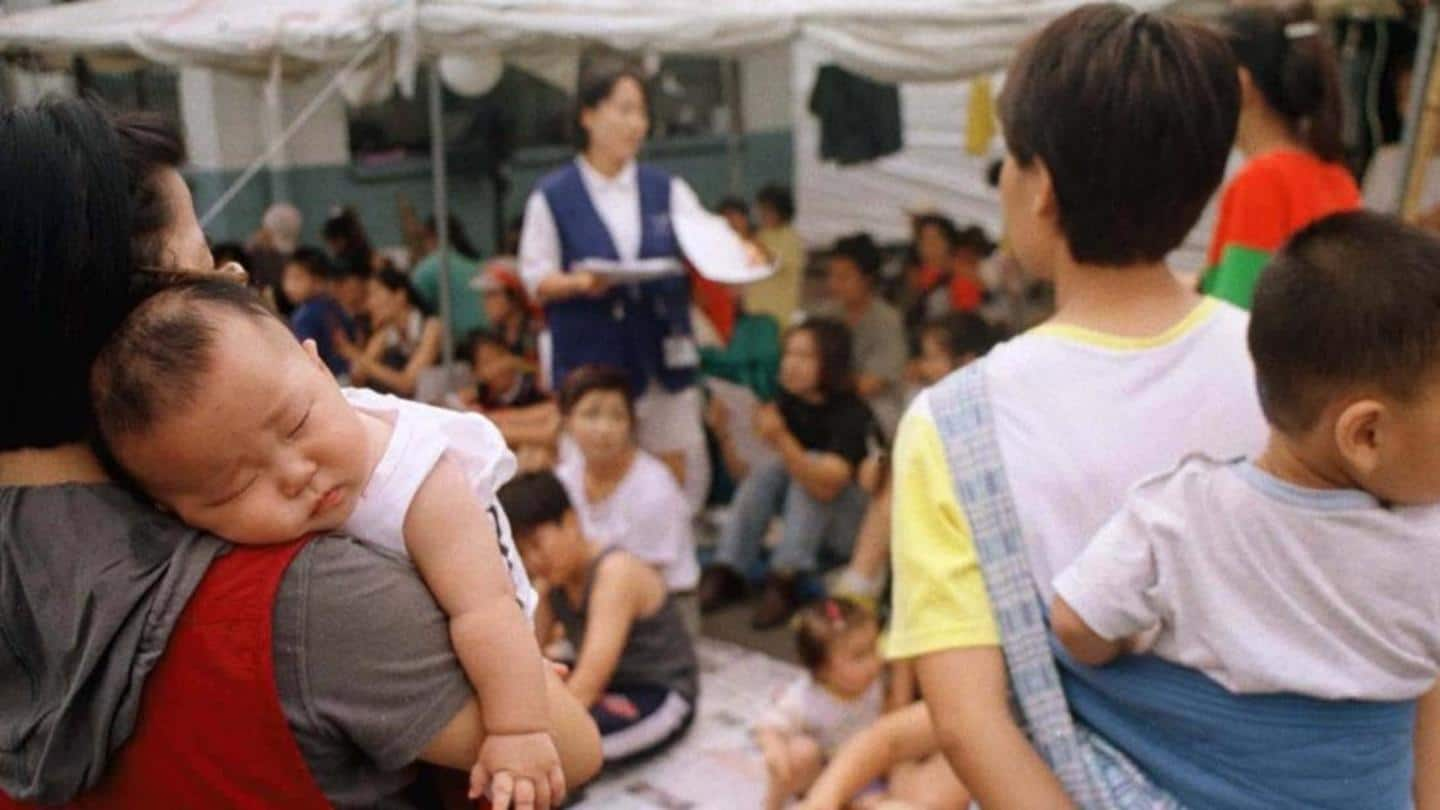
South Korea's population declines for the first time ever
What's the story
South Korea's population has dipped for the first time in its history as the Asian country recorded more deaths than births in 2020.
The government has called for "fundamental changes" over the latest census figures released at the weekend.
Notably, South Korea already has the world's lowest birth rate and a declining youth population can have a direct impact on the economy.
Data
Population shrunk by 20,838 compared to previous year
According to the latest figures, South Korea's population stood at 51,829,023 at the end of December, shrinking by 20,838 compared to the previous year.
The country recorded 275,815 births in 2020, compared with 307,764 deaths, the Yonhap News Agency reported.
The population had risen every year in the past decade, however, the growth rate had declined from 1.49% in 2010 to 0.05% in 2019.
Information
Aging population means bigger spend on healthcare, pensions
A decline in the young population leads to shortages of labor, which impacts the economy. Meanwhile, an aging population also measures bigger public expenditure as the demands for healthcare systems and pensions increase, thereby straining the economy.
Plan
Government announces cash incentives for families
Last month, President Moon Jae-in had introduced several policies to raise South Korea's birth rate, including cash incentives for families.
Under this scheme, every child born will receive a cash bonus of 2 million won ($1,850) starting 2022 to help cover prenatal expenses.
They will also receive a monthly payout of 300,000 won (500,000 won from 2025) when the baby turns one.
Reason
Why is South Korea's birth rate low?
Reportedly, South Korea's population has been declining as women struggle to achieve a work-life balance.
Women have repeatedly raised concerns over discrimination against working mothers, even as soaring real estate prices make it harder to own a home.
Speaking to BBC, Hyun-yu Kim said the government's incentives "won't solve our problems" considering the expenses of raising a child in South Korea.